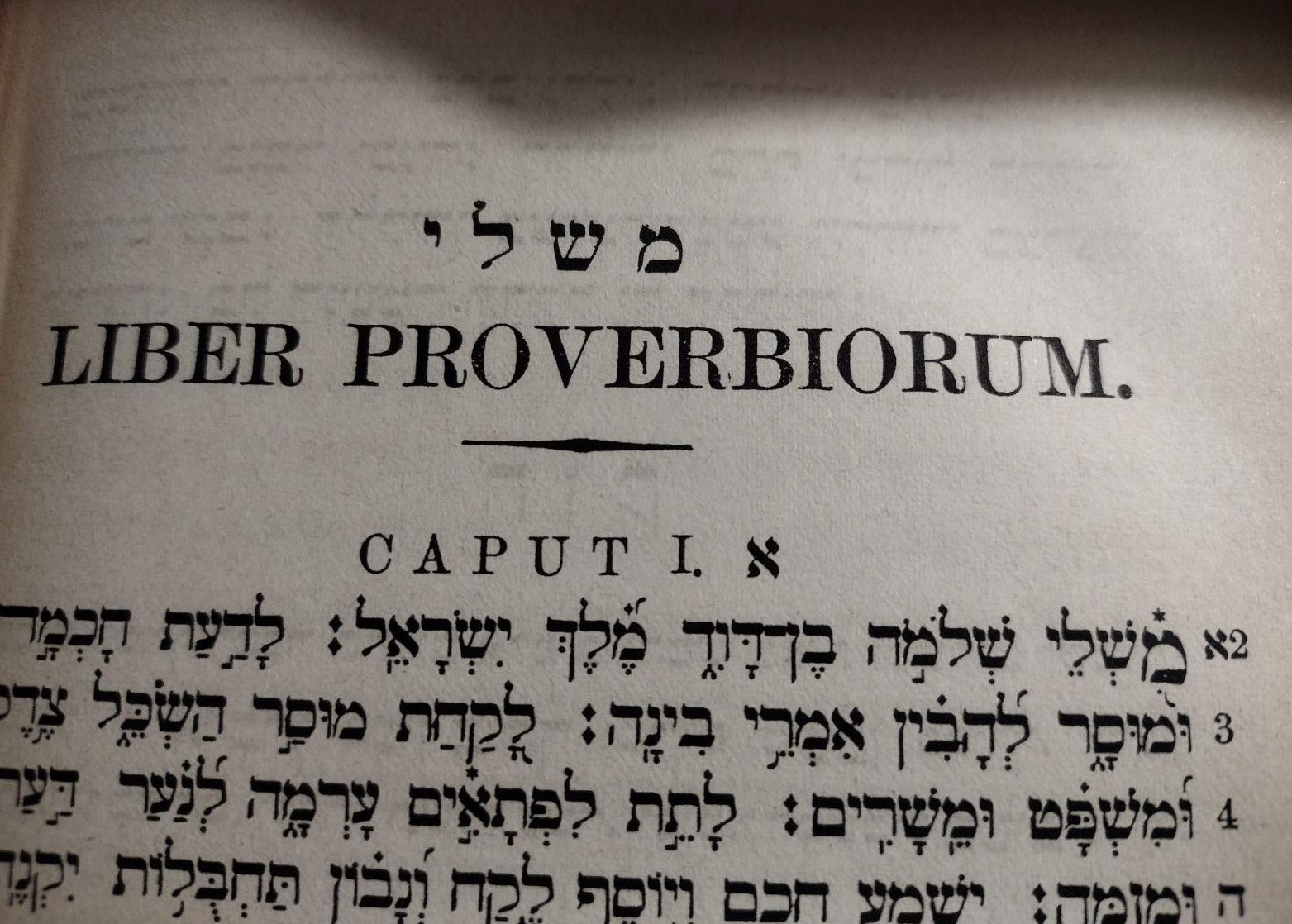Solomon: Wise King and Writer of Proverbs
The Book of Proverbs is one of the wisdom books of the Old Testament. According to legend, the Biblical books of Proverbs, Ecclesiastes, and Song of Songs were written by King Solomon (ca. 1011-931 BC). King Solomon was also the builder of the first Jewish Temple in Jerusalem.
The Book of Proverbs was written in Hebrew and consists of 31 chapters and approximately 800 aphorisms. Since no dates are given, it is not known which proverbs were written first, but it is usually assumed that the earlier chapters were written first.
The letters of “Solomon” make a total of 375
There is a biblical method of replacing Hebrew words with numbers; it is called “gematria.” Mother T. makes notes on some of the Hebrew numerals in King Solomon’s Book of Proverbs.
Mother T. left a note which says the following: “The letters of the Hebrew alphabet (all of which are consonants) have numerical values assigned to them based on their order. The numerical values of the letters of “Solomon” make a total of 375. There are exactly 375 proverbs in the Book of Proverbs, after the first ten chapters.”
In other words, since every letter of the Hebrew alphabet has a numerical value, the letters that spell a Hebrew word can be added together to make the numerical value of that word.
The name “Solomon” in Hebrew is “ שְׁלֹמֹה ” (pronounced “Shalomo”). The numerical value of that name is 375.
So, we can see that Mother T.’s note was pointing out a coincidence between the number of proverbs and the numerical value of the name “Solomon.”
Torah and King Solomon
Mr. J. has a hypothesis about the gematria of King Solomon’s name the Book of Proverbs.
The word for “Proverbs” in Hebrew is “ מִשְלֵי ” (pronounced “mishle”). The numerical value of that word is 380.
The Torah, that is, the Law of Moses, consists of five books. So, the number five symbolizes the Torah. Now, when the number that symbolizes the Torah (five) is added to the number that represents Solomon (375), the result is 380, the number that represents the Book of Proverbs. In other words: Solomon (375), through studying the Torah (5), was inspired to write the Proverbs (380).
Moreover, after chapter ten, there are said to be exactly 375 proverbs in the Book of Proverbs. So, the Book of Proverbs is equal to ten (symbolizing the ten commandments, which are the essence of the Torah) plus Solomon (375). And Solomon without the ten commandments would be 375 minus ten, which equals 365, the number of days in the year. In other words, without an understanding of the divinely revealed, eternal, and unchanging commandments of the Torah, even the wisest of men (Solomon) would be reduced to merely natural wisdom, a knowledge only of the transitory and changeable things of this world (symbolized by the number of days in the year). Thus far Mr. J.
It is Jewish rabbis who usually interpret words and numbers in this way, but there are some examples of this kind of analysis in the Christian Fathers as well—for example, in the biblical commentaries of St. John Chrysostom. Out of curiosity, I wrote my own name in Hebrew letters, and used Biblical gematria to find out what it meant (with the help of a website listing Hebrew words by their number values). I was surprised at how many of the significations described me accurately. I don’t know whether Rabbis really use gematria in exactly this way, but it was very interesting.
An Act of Divine Providence
According to the Jews, everything is God’s handiwork and there are no coincidences. Mother T. left no explanation of her comment that “After chapter 10, there are exactly 375 proverbs in the book of Proverbs.” However, she did leave the following sentence:
“Coincidence in the eyes of man is inevitability in the eyes of God.” -Mother T
I take my hat off to the wisdom of the ancient Jews, who combined the numbers of the Hebrew language like a puzzle. On the other hand, I also think that the mysterious coincidences of various biblical texts would have been impossible without the hand of God.
Glory to God!

